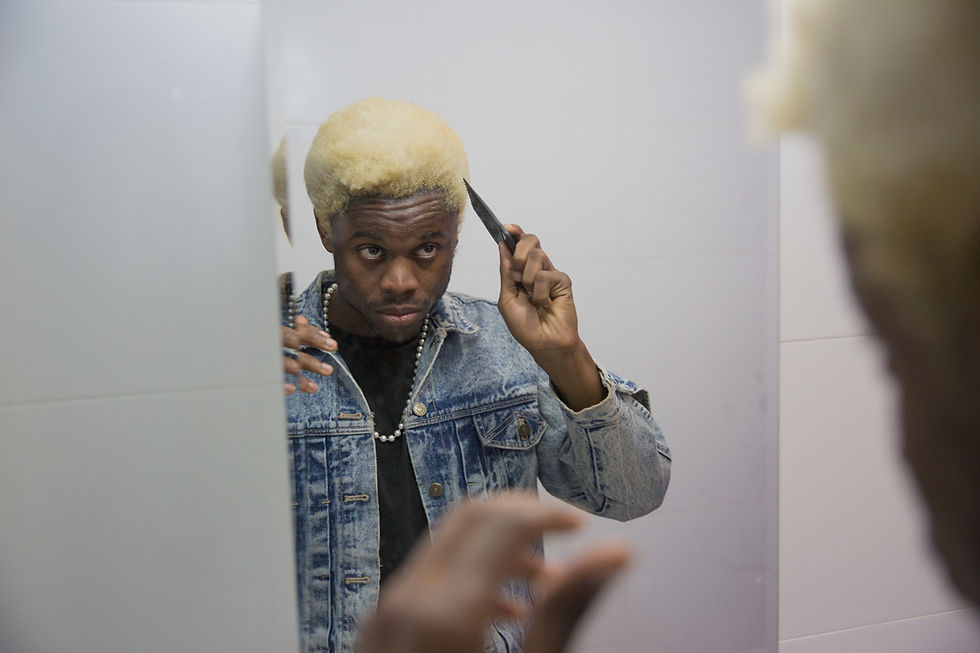I SEE YOU: Affirming Our Inner Light and Depth
- Cameron Burris

- Aug 17, 2020
- 4 min read

It is a powerful thing to be fully seen, to see ourselves and to see others. To that extent, affirming what we see in ourselves and what we see in others is one of the purest expressions of love in human form.
I consider love to be a form of connected energy. In that sense all living things are expressions of love, especially as we come to understand the extent to which we are connected to one another. I’ve always enjoyed connecting the idea of love outside of human form. Love is easy for me to sense when I’m in nature. Similarly, it’s easy for us to understand the idea of connected energy in nature. Plants get light from the sun; plants release oxygen allowing us to breath; we use plants and nature as a source of fuel and energy; and the cycle continues. This concept also applies to human energy, how people connect with one another. We see and we nourish off of each other’s energies in this cyclical way as well. But we’re often unsure how that energy translates from “I see you [as living energy]” to “I love you”.
When we say we see someone, we’re recognizing their light and their depth. And that’s a powerful thing to see. When I speak of light I refer to love, joy, peace, contentment, satisfaction, beauty and abundance. When I speak of depth, I’m talking about the ugliness of human nature—the suffering, guilt, shame, pain, jealousy, pride, greed, victimhood—the things that are passed down to us or layered on us throughout our lived experience. We see the power of being seen in many human relationships. It allows us to be vulnerable with our friends; it strengthens romantic and familial connections; it helps us put our best selves forward in our work and career. Being seen and validated can empower a person. And seeing someone’s light requires us to recognize our own, just as seeing someone’s depth requires us to view our own. So the more we understand our own light and depth, the easier it becomes to affirm what we see in others. But exploring our depth can be intimidating and scary, especially if we’ve never done it before. Especially if we don’t know how.
Another barrier I see to exploring our depth is the divisiveness of the world in which we live. For many of us, this discord is nothing new. We’ve seen it for years, decades, generations. But current events are bringing our divides to the surface, showing us the cost of unchecked power, privilege, and access in an interconnected global culture. Particularly those of use with unchecked privilege and power are challenged to find our own depth in ways that our culture has not validated. That’s the cost of unchecked privilege; it “protects us” from our own depth to such an extent that we think we are separate from it. That couldn’t be further from the truth. The truth is that we all have lightness and depth in us.
But in a culture that ignores the depth of some and exaggerates the depth of others, our differences will continue to swell and our untouched wounds will fester.
In the same way that society neglects to affirm the depths of the privileged, it also struggles to affirm the light in the oppressed. Those of us who feel marginalized and powerless have probably noticed that their perceived shortcomings are frequently highlighted and used as examples of how “not to be”. Over time this amplification of our deficiencies has a way of clouding our perception of lightness within us. On a community level, this means some of us will have a harder time seeing our depth while others will struggle to find our light. Both are imbalances that must be corrected if we’re to move towards equity.
Despite this discord, many of us are ready to look in the mirror, a metaphor for exploring the parts of our selves that we may have ignored or neglected. We’re ready to move in a way that is balancing not only for our internal gauges but also for the greater good. Many of us are beginning to understand how connected we are to the seven billion humans alive and to the ones who have preceded us, passing down their perceptions through generations.
For those of us that resonate with this message, I challenge you to find what is most balancing for you. When I say this, I’m referring to an internal exploration of your own lightness and depth. Ask yourself which is easier to see, the ways that you may have benefited from access, power, and privilege or the ways it has caused you suffering? When you look at your self in relation to our interconnected community, are you more likely to see your strengths or those of the people around you? That may be another indication of the degrees to which we recognize our selves. We all have some power and privilege though the degrees vary widely among us. It’s up to us to take an honest look, giving ourselves permission to be fully seen, maybe for the first time.



Comments